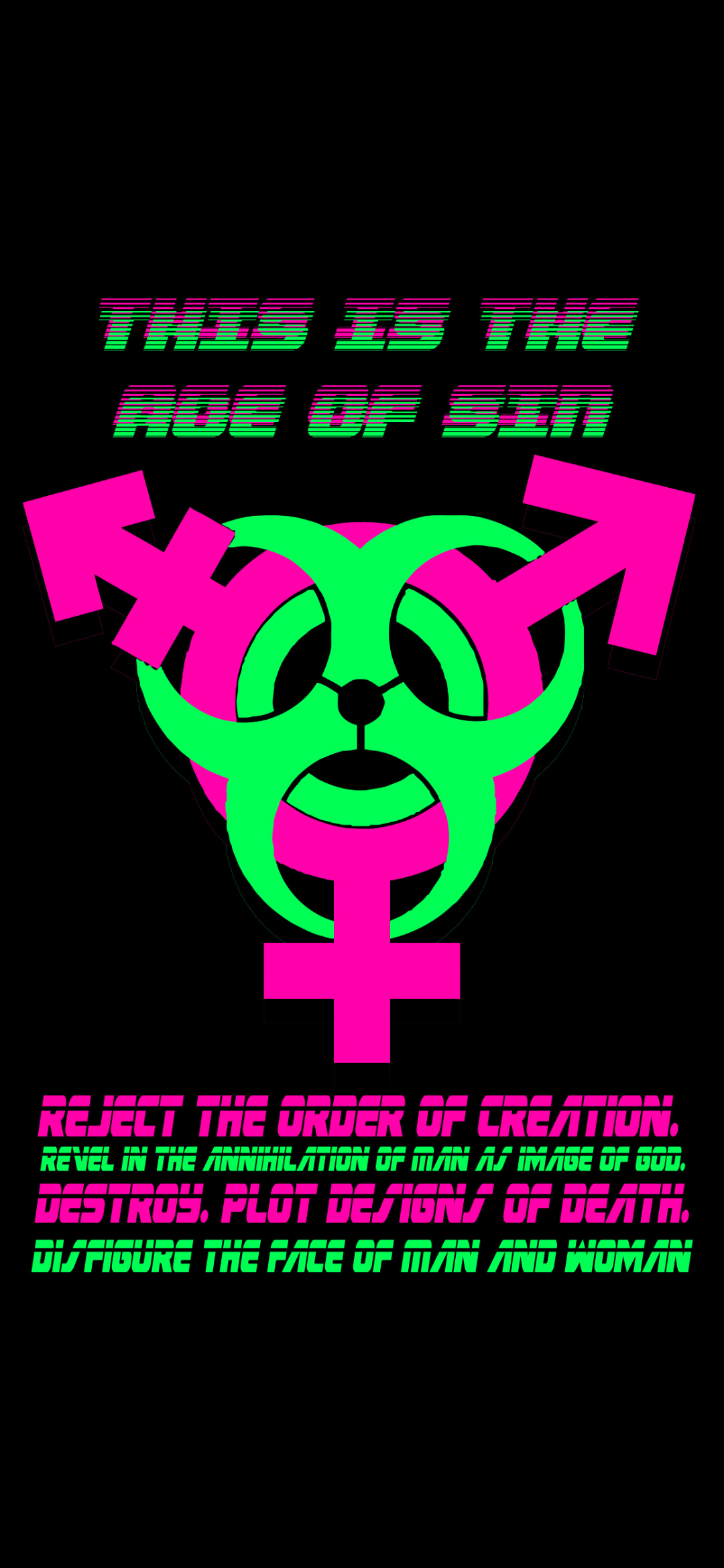The OP makes a good point:
Don’t get me wrong, I’m aware of the wonders modern medicine has done for humanity, but at the same time, it feels like we’re so limited in what we can do when it comes to medical help.
Like, a pandemic just hit the world, and we can’t provide a vaccine for at least a year? I’m aware that there are limitations and logistics that go into Maki gg a vaccine, but man, it sucks to think that we’re that limited to combating a globally wide spread disease.
And we’re so helpless against cancer, I’m aware of chemo therapy and that there’s been plenty of people who recover, but there are also people who aren’t as fortunate. It kind of sucks to think that after all this time, there are times you can’t really do anything about cancer.
Then there’s the fact we have such a limited understanding of some parts of the human body, like how we know so little about how the human brain actually operates, or that we don’t even know where to begin with restoring something as crucial as eye sight.
And some people are just paralyzed forever, why don’t we have treatment for nerve damage?
I understand that each of these questions have a clear explanation for the state of their research, but my general question comes down to, why does “modern medicine” feel so much more limited than what I would normally think it’d be by our times? Perhaps it’s just the perception around the term “modern medicine” but it sucks to see that we’re so helpless against certain things.
And of course the big brained cope in the replies:
If you had to live for a year in the 1100s, see people die of condition we can cure now, see people suffer condition we can manage easily, you'd be a believer, but you can only read about them dryly and think something is lost there
I mean you could also apply this reasoning to things like racism, sexism, etc. "Bro at least it's way better than a thousand years ago HURR DURR."
Meanwhile you got countries like China that effectively stopped a major virus within its borders and you have Cuba developing a lung cancer vaccine and curing HIV in an infant along with developing its own vaccines that don't rely on needles (cuz of the blockade) or super sub-zero freezers (like the US vaccine).
I understand that some of the science is "hard." But my god, I can't help but think we would have cured (like actually cure, not "treat") so many things by now if it weren't for our fucked up system.
Here's the thing. Modern medicine isn't just vaccines. Modern medicine tells us that prevention is better than cure...In other words, a properly coordinated and well-organized lockdown would have ended covid. This is what research had told us for decades was the best way to end a pandemic, but of course politicians um'd and uh'd about it because they didn't want to sacrifice their capitalist master's profits. They did half measures and killed millions for profit. That's all there is to it.
Modern medicine isn't perfect, but you can't properly judge its performance in a system that kneecaps it.
What's sad is there's 100% ways of primary prevention for cancer and they aren't "hard" (in that there are actionable solutions but atent considered for political-economy reasons) but go against profit motives. Like, pollution, inadequate housing, wildfire smoke, poor diets, and so on.
And then the really sad stuff is something like the struggle against microplastics - well, that's just lost now. Even if we had a global communist revolution tomorrow, microplastics will be with us for tens of thousands of years. We didn't do any prevention because plastic made too much sense from the pov of capital and no one with power was around to intervene against it.
I have a ton of allergy and chronic respiratory issues and nobody knows why or how to do anything about it
Read the Wikipedia articles for common cough medicines and you'll see a lot of "we don't know why it works but it seems to, sometimes anyway"
The depths of medical ignorance for even basic everyday shit are profound
It's honestly astonishing that we know how any medicines work, as soon as I start reading about ion pathways and enzyme channels I just cannot wrap my head around the research that must have taken.
Some of it is like acetaminophen and we still don't know how it works cause, really, we still don't understand pain particularly well
Other stuff is like lithium, one of the only pharmacological interventions against suicidality, and it's just a total mystery. Everytime I open up lexicomp for a new-to-me mental health med the mechanism of action is 50/50 "mechanism unknown" lol.
It’s where the money goes. I’d bet that progress in other areas would be exponentially faster if we had more/wealthier socialist states.
I think the reason is that computing rests on a single technology, semiconductor manufacturing, which has been getting exponentially better for the last 40 years. It's unique in that any improvements in that specific technology immediately apply as they are to every single aspect of computing, and of course other domains have their own improvements.
In other sectors of technology, you just don't have this one single thing that immediately and commensuraly improves everything else. Most other fields are more like a piece meal where no single thing can improve everything else directly.
Reminds me of those diseases we literally literally have cures or live saving treatments for. That often the creators wanted to be free and so gave away the patent. And now the medicines are either insanely expensive because those who need it have no choice to not buy it OR they just don't get made. Like ya we know the formula for this but no we won't make it because too expensive or not enough patients. And no we won't let anyone else make it it's ours.
I guess this comes down to if you view medical progress as how far we've come vs. how far there is still yet to go (and how much further we could be along without the stranglehold capitalism puts on it). Neither of those lenses are necessarily wrong, just useful in different ways
Dentistry is the most depressing out of all of them it’s hard to find one you can even trust so many take advantage of the pain you’re in to give you unnecessary treatments and of course there’s a lot of resistance to treating dentistry under the wider umbrella of healthcare because money. https://newrepublic.com/article/163012/reasons-hate-dentist-malpractice
I had some wisdom teeth removed and at the time, my bottom ones didn't fully come out. The oral surgeon kept pressuring me to take them out anyway, while re-iterating the risk of nerve damage in the same breath. He seemed really annoyed that I refused and stood my ground on "only the non-risky top". Like idgaf, you're telling me there's a 40% chance I can't feel my jaw for months if not years after this, fuck off.
Now it's totally out and basically risk-free to get snagged out.
Like sure stuff's better now than when a papercut could legitimately result in an amputation.
BUT modern medicine is especially :doomer: because there are so, so many things where everyone knows intuitively EXACTLY what to do, but our system has been designed to prevent us from doing it. Everybody knows that you shouldn't be going into work sick, but in a lot of places you straight up won't get paid if you do that so you go in and spread your shit around and :surprised-pika: now all your coworkers are sick too. Everybody knows that getting cancer is more or less random and that it's incredibly fucked for people to have their and their family's financial lives ruined because of it, and yet that shit still happens regularly. Our system prioritizes price gouging for treatment over researching cures, and everyone kinda knows that that's the case and that it's completely ass-backwards to how the health industry should be operating.
Well something with medicine is that everytime you want to try something new, it takes you years and billions of dollars, and we don't have any accurate simulations, so everytime you want to try something, you need to wait the whole duration of the trials, and then you can iterate again (if you didn't go bankrupt). On top of that, capitalism disincentivizes risky trials, and IP is a fuck. But it's legitimately so much more difficult.
Until we solve protein dynamics and/or find a far better way to do trials, it will stay this way.
Two obstacles to modern medical advances.
Firstly - political obstruction. Politicians aren't experts in medicine and are more dependent on advice from lobbying groups than scientists so legislation ends up obstructing the effectiveness of research. (An obvious example here would be STEM cell research which was put on hold for decades due to moral panics from religious groups but one I'm more angry about is antivaxers successfully lobbying parliament to ban the use of Thiomersal, a fungicide with no known ill effects on humans, effectively limiting the shelf life of all vaccines).
Secondly - IP law. Do you know how many types of Next-gen Genome Sequencing exist? The techniques used in each one are held exclusively by the company that funded research into so all research into NGS is dedicated to producing new, legally distinct techniques. As a result the general efficiency of whole genome sequencing has stalled because instead of scientists iterating on what works, the finest minds in genetics are all pooled into figuring out how to do the same thing but slightly different.









